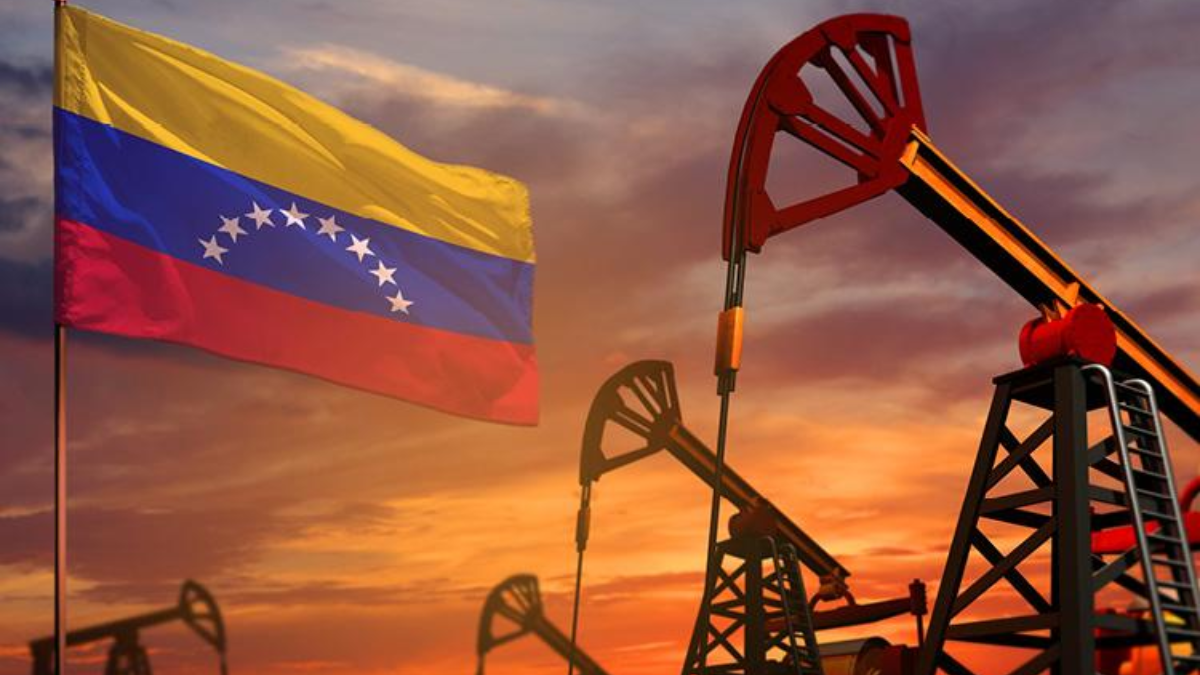Former President Donald Trump has announced a 25% tariff on Venezuelan oil and gas, citing concerns over the growing influence of the criminal organization Tren de Aragua.
This decision comes amid escalating security concerns related to the transnational gang, which has been linked to various illicit activities, including drug trafficking, human smuggling, and violent crime across Latin America and the United States.
The new tariff aims to put economic pressure on Venezuelan President Nicolás Maduro’s government while reinforcing U.S. energy security and cracking down on criminal enterprises.
Understanding Tren de Aragua and Its Influence
Tren de Aragua is one of the most dangerous criminal organizations in Latin America, with its operations extending beyond Venezuela into Colombia, Peru, Chile, and even parts of the U.S. The gang has been accused of engaging in organized crime, human trafficking, and extortion, fueling regional instability.
Many security analysts believe that Maduro’s government has not done enough to dismantle the criminal network, and some even allege complicity in its activities.
Trump’s decision to impose the tariff is seen as an effort to weaken both the Venezuelan government and the financial power of criminal organizations. By targeting oil revenues, the move could put additional economic pressure on Maduro, who relies heavily on oil exports to sustain his regime.
Economic and Political Implications of the Tariff
The implementation of a 25% tariff on Venezuelan oil and gas could have far-reaching consequences, affecting not only the two nations but also the global energy market. Some of the key impacts include:
1. Impact on U.S. Energy Prices
Venezuela has historically been a significant supplier of crude oil to the United States, and a tariff of this magnitude could lead to higher prices for consumers. While the U.S. has diversified its energy sources in recent years, a reduced flow of Venezuelan oil could still impact domestic fuel costs, especially in industries reliant on heavy crude imports.
2. Venezuela’s Struggling Economy
Venezuela’s economy, already in dire straits due to hyperinflation and sanctions, depends on oil and gas exports as a primary revenue stream. A 25% tariff could make it even more challenging for the country to sell oil to the U.S., forcing it to seek alternative buyers like China and India.
However, increased shipping and logistical costs could erode profits, worsening Venezuela’s economic crisis.
3. Diplomatic Fallout and Global Reactions
Trump’s announcement has drawn mixed reactions from the international community. While some U.S. allies support the move as a necessary step to combat organized crime and pressure Maduro’s regime, others worry about potential economic repercussions.
Countries reliant on Venezuelan crude, such as China, Russia, and India, may seek to strengthen ties with Maduro, potentially undermining U.S. diplomatic efforts in the region.

Maduro’s Response and Venezuela’s Next Steps
In response to the tariff announcement, Maduro’s government has condemned the move as “economic warfare,” accusing the U.S. of attempting to sabotage Venezuela’s recovery efforts. Venezuelan officials have vowed to seek alternative markets and legal action to challenge the tariff.
Additionally, Maduro may attempt to bolster alliances with other anti-U.S. nations in Latin America and beyond to counterbalance the economic strain.
Experts suggest that Venezuela could respond by increasing oil exports to China and India, despite the challenges of refining and transporting crude oil to these distant markets. However, with fewer options available, the financial strain on the Maduro administration could deepen, potentially leading to heightened political instability within the country.
Broader U.S. Strategy Toward Venezuela
Trump’s tariff is part of a broader strategy aimed at restricting Maduro’s influence while addressing security concerns related to criminal organizations like Tren de Aragua. The former president has long been a vocal critic of Maduro and previously implemented sanctions to limit Venezuela’s oil exports.
This latest move aligns with his administration’s past approach of using economic pressure to achieve political and security goals.
If re-elected, Trump is expected to continue a hardline stance against Maduro’s regime, potentially expanding economic restrictions and increasing law enforcement efforts to target criminal networks operating within the U.S.
The Role of the U.S. Congress and Legal Challenges
Although Trump has proposed the tariff, its implementation could face legal and political obstacles. Congress may weigh in on the measure, particularly if it impacts American consumers or businesses significantly.
Some lawmakers may argue that the tariff could drive up energy costs, while others may support it as a necessary tool to combat crime and counter Venezuela’s authoritarian regime.
Legal challenges could also emerge, as trade tariffs often require justification under existing U.S. laws governing international commerce. Proponents of the tariff will likely frame it as a national security measure, emphasizing its role in disrupting criminal networks tied to the Venezuelan government.
What’s Next for the U.S.-Venezuela Relationship?
The next steps in U.S.-Venezuela relations will depend on how both governments navigate the economic and political fallout from the tariff. If the measure leads to further destabilization in Venezuela, the U.S. could face a growing migration crisis, as economic hardship drives more Venezuelans to flee the country.
For now, the tariff remains a key talking point in U.S. foreign policy, particularly as election campaigns heat up. Whether it succeeds in weakening Tren de Aragua and pressuring Maduro’s regime remains to be seen, but its impact on the energy market and geopolitical landscape is already being closely monitored.
For further analysis on how this tariff could impact global energy markets, visit Energy Information Administration.
Disclaimer – Our team has carefully fact-checked this article to make sure it’s accurate and free from any misinformation. We’re dedicated to keeping our content honest and reliable for our readers.
